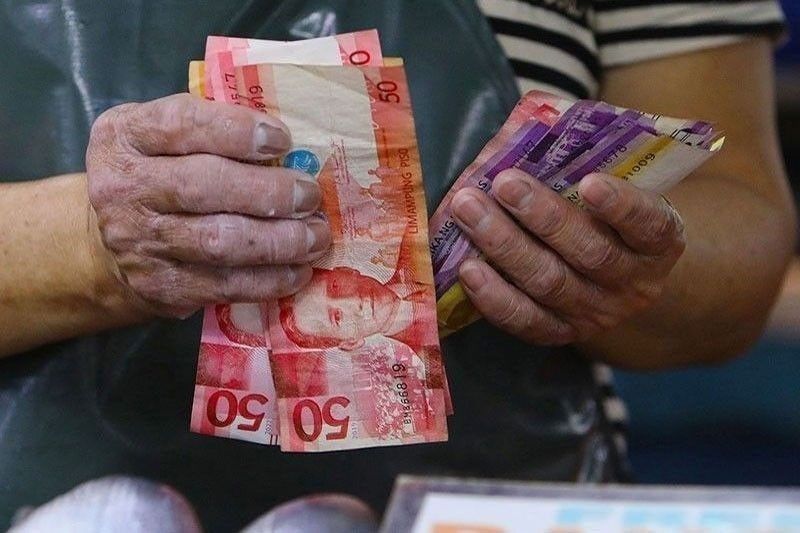
Upgrade to High-Speed Internet for only ₱1499/month!
Enjoy up to 100 Mbps fiber broadband, perfect for browsing, streaming, and gaming.
Visit Suniway.ph to learn
Cristina Chi - Philstar.com
March 31, 2025 | 4:33pm
MANILA, Philippines — Three Filipino minors or teenagers have been released from police custody in Qatar while 16 adults remain detained following their arrest during a public demonstration in support of former President Rodrigo Duterte, a Department of Foreign Affairs official said on Monday, March 31.
"I said there were 19 detained, now there are 16. Three of them were minors and they were released. They're teenagers, not young children. But their mother is still in custody," Foreign Affairs Undersecretary Eduardo de Vega said in mixed English and Filipino during a press conference.
Twenty Filipinos were arrested on Friday, March 28 for participating in what Qatari authorities deemed an unauthorized political demonstration.
The gathering — which reportedly coincided with former President Duterte's 80th birthday — was described by De Vega as a "picnic gathering" organized by Filipinos in support of the former president, who is currently detained at the International Criminal Court for crimes against humanity charges.
Qatar maintains strict regulations on public gatherings through its Law No. 18 of 2004, which criminalizes unauthorized protests and requires all demonstrations to be approved by the government.
Persons taking part in unauthorized public demonstrations in Qater could face imprisonment of up to three years.
As diplomatic efforts continue to secure their release, the DFA has provided specific details about the current detention and possible legal challenges that the Filipino nationals could be facing.
Here is what is known so far about the Qatar arrests.
Who was arrested?
Initial reports placed the number of Filipinos arrested at 20.
At least one was initially released, according to the DFA. The three minors were subsequently released by Monday.
Of the 16 still in custody, at least nine are men, while the other seven are women.
"They were just indicating their support for the former president. And they were — I think they were harmless. It was more like a picnic gathering, but there were t-shirts, placards or what. That's the reason they were arrested," De Vega said.
What is happening with those in custody?
The Philippine embassy in Doha interviewed the female detainees on Sunday and is scheduled to interview the male detainees on Monday.
Qatari authorities are questioning the Filipino nationals about their intentions behind the protest.
"What's being asked to them is if they have plans to disrupt Qatar, why are you in a rally, do you want to destroy Qatar-Philippine relations," De Vega said, quoting information from the Philippine Ambassador to Doha, Mardomel Celo Melicor.
De Vega noted that the investigation process might be prolonged partly because of Ramadan, which formally ended on Monday.
Is there a bail system in place?
There is no bail system in Qatar, according to the Philippine Ambassador to Doha as cited by De Vega.
"Bail does not work there. They will finish the investigations and set the detained person free if warranted, or keep him or her in detention if charges are filed," De Vega said.
He added: "This is the Middle East. Do not use our local laws or our constitutional protection. This is not a Western-influenced country like the Philippines."
What is the Philippine government doing?
The embassy is actively working for the release of the detained Filipinos. "What we want is for them to be freed and to return to work. That's what the embassy is working on," said De Vega.
The Philippine embassy is coordinating with local authorities to provide consular assistance to the detailed Filipinos.
De Vega said the embassy is working to convince Qatari authorities "to just let them go already and maybe with a fine" rather than filing formal charges.
"They will have services of legal counsel," De Vega said. At this stage, De Vega said, the detainees likely do not have lawyers yet.
Why are political demonstrations prohibited?
Qatar, like many Middle Eastern countries, prohibits political rallies, particularly by foreign nationals. De Vega pointed out that roughly 80 percent of Qatar's population consists of foreigners.
"So they want to, in a way, control the behavior or movements of foreign citizens who dominate the population of the country. So it's not a bias," the DFA official explained, adding that Filipino workers are "well appreciated" in Qatar.
What should other Filipinos abroad know?
De Vega said the incident is a strong reminder for overseas Filipinos to respect local laws and customs.
"This is a good warning para sa mga kababayan sa Qatar o ibang bansa sa Middle East na huwag makilahok (for other Filipinos in Qatar or other countries in the Middle East not to join)," the DFA official said.
De Vega suggested alternative ways for Filipinos to express their political views:
"If you want to share your political beliefs or political views, there's an election, you can register in our embassy... to vote in our absentee voting. That's one way to express their feelings as Filipino citizens where there will be no arrests."
The Philippine embassy at Doha has reiterated its previous advisory dated March 13, which called "for all Filipino nationals in the country to respect local laws and customs relating to mass demonstrations and expressions of political grievances."
The undersecretary stressed that the situation does not reflect any bias against the Philippines or the former president.
"It is not to be taken as an indication that Qatar is biased for or against the Philippines or the former Philippine president," he said.

 2 months ago
24
2 months ago
24



